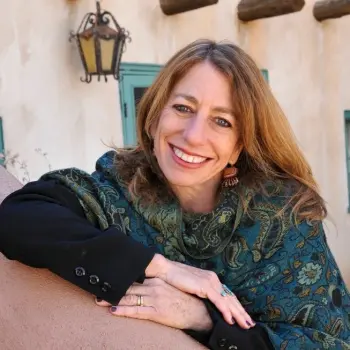Jack Kornfield tells the story of the late Buddhist monk Chögyam Trungpa Rinpoche who was one day giving a talk at a lecture hall in Berkelely, California. The participants had paid $15 each to hear him speak and once the hall had filled, Trungpa asked them: “How many of you are just beginning your spiritual practice?”
A number of people raised their hands. He looked around the room and said, “Fine, my suggestion is that you go home. At the back door, they will give you your money back and you can go home now and not get started in this very difficult and terrible process.” Now with the audience’s rapt attention, he continued:
‘It is a lot more difficult than you know when you begin. Once you start, it is very difficult to stop. So my suggestion to you is not to begin. Best not to start at all. But if you do start, then it is best to finish.”
Trungpa is referring to the spiritual path many of us are on right now.
The difficulties come when what we know is true in our hearts collides with the complexities of living in the real world. It can be difficult to remain spiritually centered, to live a life of loving kindness, to strive for a greater purpose in life—while also working a 9-to-6ish job, raising children or grandchildren, caring for an elderly family member or just dealing with the pressures of everyday life from paying the bills to dealing with a moody spouse.
But once we embark on the spiritual path, there is no turning back. The genie is out of the bottle. Since it is a journey without a goal, there is no finish line or end to the spiritual path. (At least not until our soul passes on to our next adventure.) The path becomes an integral part of our lives, even during the times we push the idea to the back of our heads or momentarily lose our way.
Navigating the path can make life tricky. Unless we have retreated from the world and joined a monastery or religious order, we move through life with one foot on the traditional path, the one that society steers us to, with the other foot on the spiritual path. We sometimes walk the traditional path during the day and venture off to the spiritual path late at night or early in the morning, though we do our best to integrate the two.
Only at a certain point, the spiritual path becomes more important.
In the book Spiritual Emergency, Kornfield writes that “spiritual practice often undermines worldly motivation.” As “our consciousness grows and we develop feelings of universal love,” our motivation to climb the corporate ladder, pursue financial wealth or obtain more material possessions diminishes. “We have turned down the heat, the interest in worldly things.”
The spiritual path becomes our way, because we can never unknow what we have learned or make believe that it never happened. Ram Dass continues this theme in Spiritual Emergency, telling us that once we are on the path, there is no falling off it. Sure, we may occasionally slip up and catch ourselves saying or doing things we later regret, but as Ram Dass says, “you can forget for a moment, but what you think you have forgotten will keep coming back to you.”
Why do we do it? Is being on the spiritual path worth the effort?
If you believe that your ultimate goal in life is to reach your fullest potential as a human being; if you want to look back from your deathbed and have no regrets, the question answers itself. Yes. Being on a spiritual path not only defines your purpose in life, it often becomes indistinguishable from your purpose in life. What’s more, we don’t just follow this path for ourselves; we do it for those around us. To again quote Ram Dass:
You work on yourself, spiritually, as an offering to your fellow beings. You cultivate the qualities of peace, love, joy, presence, honesty and truth.
As your life becomes your path, you are living from your truest self. To paraphrase Gandhi, your life itself becomes your message. Your daily activities and actions encourage and influence others. During dark times, you become a candle that lights the way. You navigate the joys and perils of life, the ups and the downs, with an open heart and a calm and even demeanor. You know no other way.














